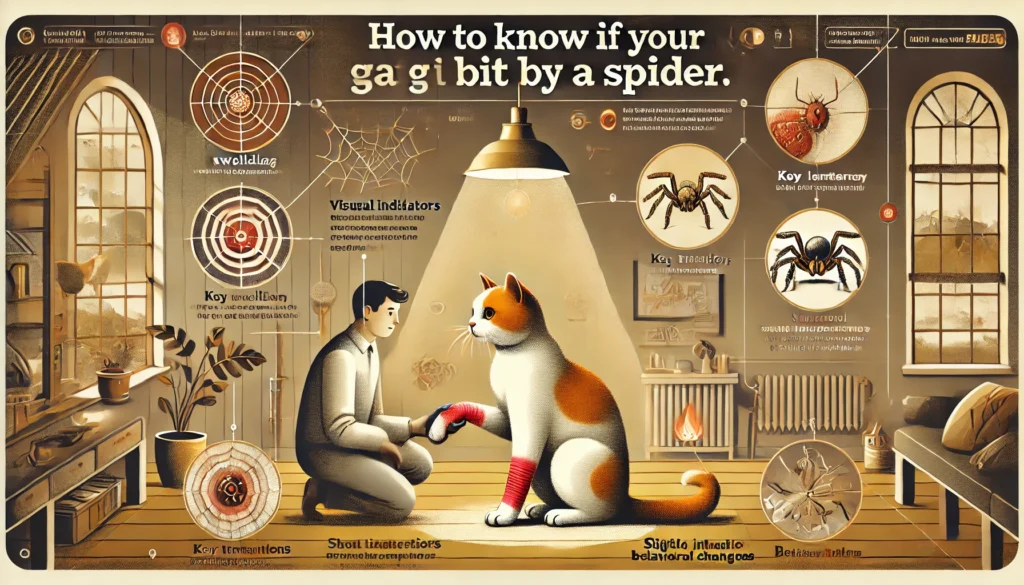
Spidey Senses Tingling? How to Know if Your Cat Got Bit by a Spider
Our pussycat buddies are curious creatures, frequently exploring each nook and cranny of their area. Unfortunately, this may once in a while lead to encounters with undesirable creepy crawlies, like spiders. While maximum spider bites are harmless, a few can be venomous and pose a chance for your cat’s fitness.
Table of Contents
Knowing the signs and what to do can be vital in ensuring your bushy accomplice’s well-being. Early detection and appropriate treatment are important for a rapid recuperation.
Recognizing the Signs of a Spider Bite
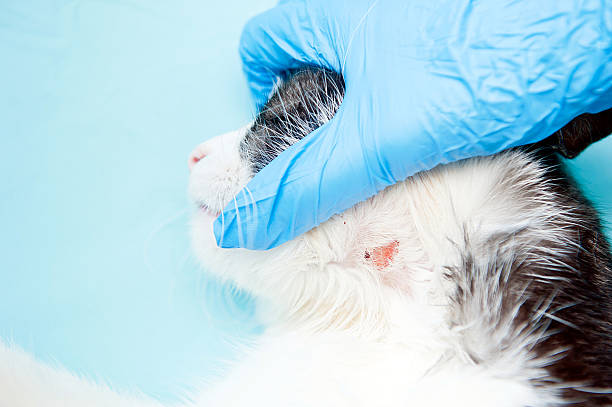
Identifying a spider chew on a cat can be tricky, as their fur can hide the wound. However, there are several telltale signs to observe out for, both physical and behavioral. A mixture of those signs is frequently the most powerful indicator.
Visible Bite Marks
The maximum obvious sign is a seen bite mark. This may also seem as a small, crimson bump, frequently with two tiny puncture wounds inside the center. However, due to their fur, these marks can be hard to identify. Look for any unusual swelling or redness on your cat’s pores and skin, particularly in regions with much less fur, consisting of the ears, face, paws, and stomach. Carefully component the fur in suspected regions to get a closer look.
Behavioral Changes
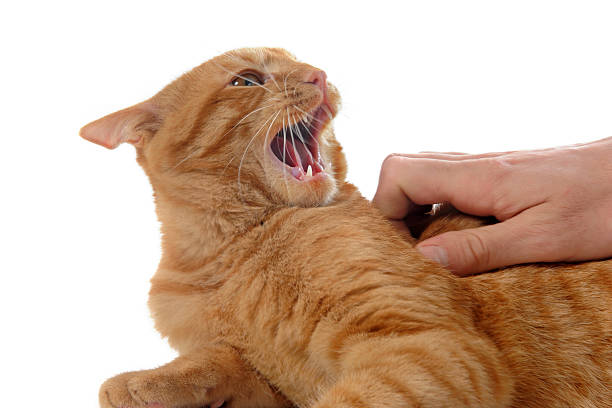
Even if you can not see a bite, changes in your cat’s behavior may be a clue. A cat that has been bitten may come to be lethargic, lose its urge for food, or showcase signs of ache, which include limping or immoderate grooming of a selected vicinity.
They can also emerge as extra irritable or withdrawn, hiding more than normal or reacting defensively to the touch. Pay close attention to any unusual conduct and recall the possibility of a bite, mainly if it is observed by way of different signs and symptoms.
Localized Symptoms
Spider bites regularly cause localized signs and symptoms across the bite website online. These can encompass swelling, redness, ache, and itching. Your cat can also excessively lick or scratch on the affected place, which could similarly worsen the wound and boom the chance of infection.
If you note your cat focusing on a selected spot, lightly have a look at it for any signs of a chew, preserving in thoughts that some cats can be sensitive to touch when in ache.
Differentiating Between Spider Bites and Other Issues

It’s crucial to don’t forget that no longer all pores and skin irritations are spider bites. Cats also can get stung through bugs, increase allergies, or revel in different pores and skin issues. Accurate identification is important for suitable treatment.
Insect Stings
Insect stings can mimic spider bites, causing comparable symptoms like swelling and redness. However, insect stings regularly leave a stinger in the back of, which may be visible at the site. Spider bites commonly do not have a stinger present. Look closely for a small, darkish item embedded within the pores and skin.
Allergies
Allergies can also motive skin inflammation in cats. However, allergic reactions frequently gift with more widespread signs, including sneezing, watery eyes, and generalized itching. Spider bites tend to be extra localized. Allergic reactions can also contain different signs like coughing or digestive disappointed.
Other Skin Problems
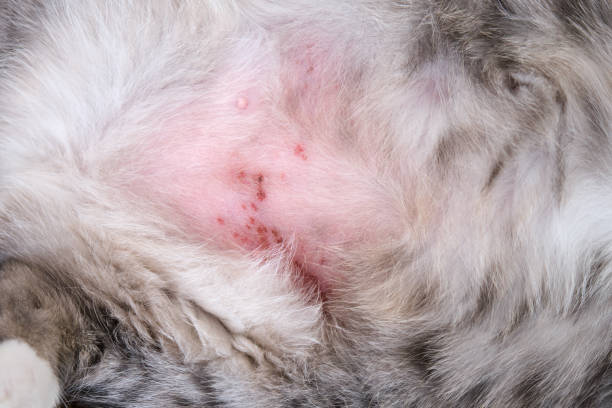
Cats can expand diverse pores and skin situations, inclusive of dermatitis, ringworm, or abscesses, which could every now and then resemble spider bites. These situations often produce other accompanying symptoms, such as hair loss, scaly pores and skin, or a nasty scent.
If you are unsure, it’s usually fine to discuss with your veterinarian for a right diagnosis. They can carry out exams if necessary to rule out other reasons.
What to Do if You Suspect a Spider Bite
If you believe you studied your cat has been bitten by way of a spider, it’s important to take action directly. The severity of the bite and the form of spider (if recognized) will have an effect on the route of movement.

Monitor Your Cat
Closely display your cat for any worsening signs. If the swelling increases, your cat turns into extra lethargic, or you notice any symptoms of contamination (such as pus, a foul scent, or fever), seek veterinary attention straight away. Note any modifications in conduct, appetite, or removal habits.
Consult Your Veterinarian
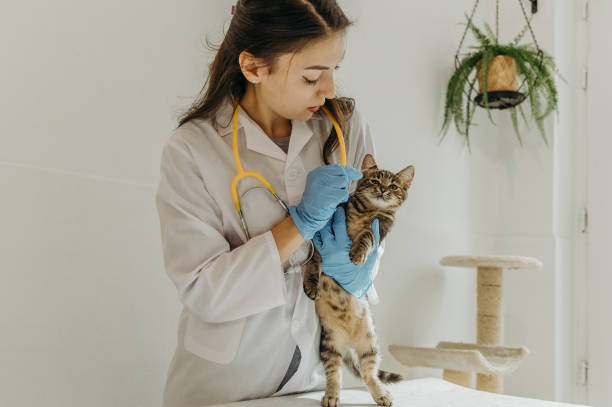
Even if the chunk appears minor, it is continually a great idea to visit your veterinarian. They can investigate the bite, decide if it’s venomous (in case you have been capable of perceive the spider), and endorse appropriate treatment. In some cases, they will administer medicinal drug to counteract the venom or prevent contamination, such as antihistamines, corticosteroids, or antibiotics.
FAQs: Spider Bites on Cats
What are the most commonplace symptoms of a spider chew on a cat?
Visible chew mark (though regularly difficult to look), swelling, redness, localized pain, immoderate grooming of the place, lethargy, lack of appetite, modifications in conduct (e.G., hiding, irritability).
Can I treat a spider chew on my cat at domestic?
It’s exceptional to discuss with your veterinarian before attempting any home remedy. Some home remedies may additionally in reality get worse the circumstance.

Are all spider bites on cats dangerous?
No, most are not, but a few may be venomous and require instantaneous veterinary attention.
How can I inform if a spider chew is venomous?
It’s tough to tell with out knowing the spider species. Consult your vet for assessment, mainly in case you suspect a black widow or brown recluse bite.
What should I do if my cat is bitten with the aid of a black widow spider?
Seek instantaneous veterinary attention as black widow bites can be life-threatening. The venom can purpose excessive muscle cramps and different extreme signs.
Can spider bites purpose long-term problems for cats?
In a few instances, sure, specially if the chew becomes infected or if it is from a venomous spider. Tissue harm, scarring, and neurological troubles are viable.
How can I prevent my cat from getting bitten by means of spiders?
Keep your home smooth and litter-free, and seal any cracks or holes where spiders should enter. Regularly vacuum and bear in mind expert pest manipulate if you have a spider problem.
Do cats sense ache whilst they are bitten by way of a spider?
Yes, they in all likelihood do, even though they’ll not usually display it. Changes in behavior can be the most effective indication they’re in discomfort.
Can a cat die from a spider chunk?
Yes, although it is uncommon, specifically with set off veterinary care. Small kittens, elderly cats, and cats with underlying health situations are at higher hazard.

How long does it take for a spider chew to heal on a cat?
It depends on the severity of the chunk, however normally some days to every week with right care. More critical bites may additionally take longer to heal and require greater intensive remedy.
Conclusion: Protecting Your Feline Friend
Spider bites, whilst every now and then unavoidable, can pose a hazard on your cat’s fitness. Being vigilant and spotting the signs and symptoms is key to ensuring their properly-being. If you think your cat has been bitten, don’t hesitate to discuss with your veterinarian.
Early intervention can make a giant difference within the outcome and assist your hairy friend get better quick. By taking proactive measures, including retaining your house clean and clutter-unfastened, you may help defend your cat from the capacity risks of spider bites and keep them safe and wholesome.
Remember, with regards to the one you love puppy, it’s constantly higher to be secure than sorry. Prompt veterinary care is important for the fine viable outcome.


